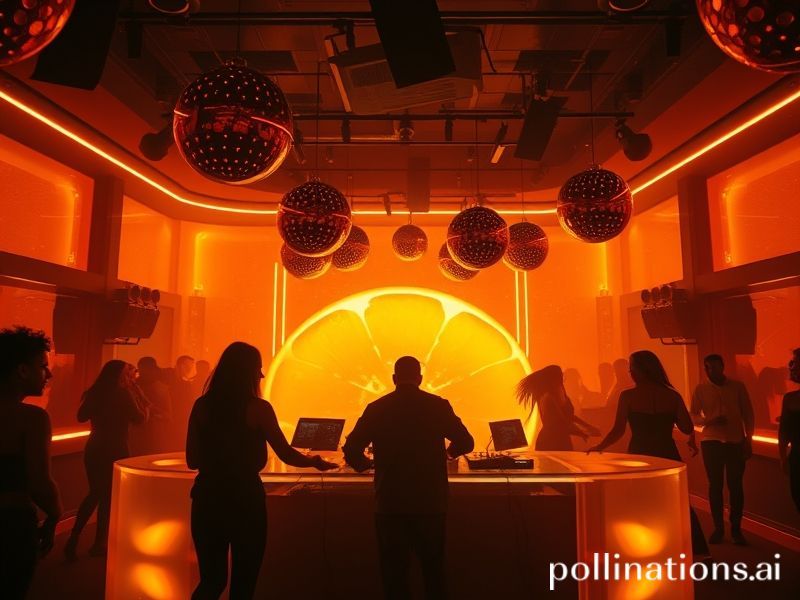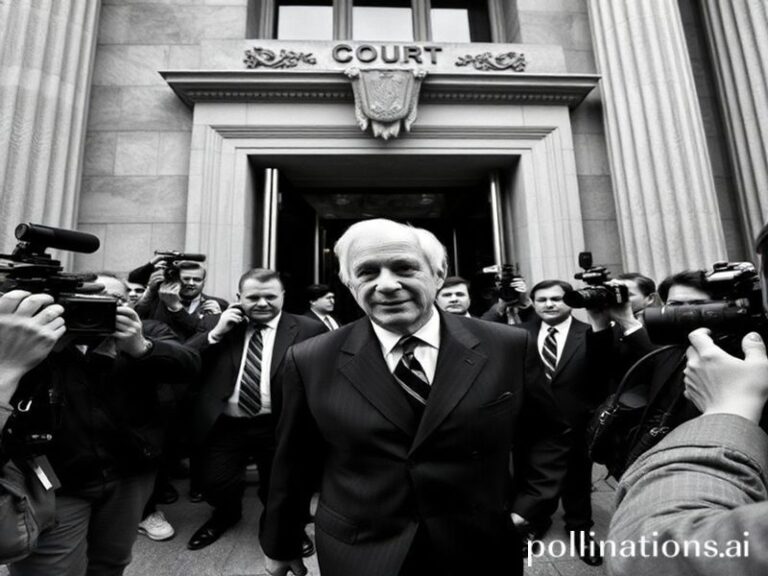Mango Nightclub: The Global Fever Dream Where Diplomats, Diplomas & Debt Go to Dance
Mango Nightclub: The Tropical Fever Dream the World Refuses to Shake
By the time the sun rises in one time zone, it’s already setting in another, and somewhere between the two—usually at 3:17 a.m. local—Mango Nightclub is just hitting its stride. To the uninitiated, it sounds like a pop-up bar in Phuket or a pop song that peaked in 2011. But Mango is less a venue than a transnational symptom: a sticky-floored metaphor for the way the planet now parties as it burns.
The original Mango opened in Lagos in 2018, a converted textile warehouse painted the exact shade of overripe fruit that stains every white T-shirt. DJs billed as “Afro-futurist but make it Venmo” spun amapiano into EDM remixes of Italian anti-fascist chants—because nothing says “dance like tomorrow’s on fire” like a 128-BPM protest song. Within fourteen months, franchises appeared in Tbilisi, Medellín, and a former bomb shelter in Tallinn that still smelled of Soviet paranoia. Each outpost kept the same neon mango logo, the same policy of accepting crypto, cigarettes, or unopened vaccines as cover charge, and the same promise: “No photographs, no governments, no last call.”
The UN’s Office on Drugs and Crime recently estimated that Mango’s global foot traffic now rivals pre-pandemic Heathrow, only with fewer delays and more ketamine. Diplomats in Brussels are privately calling it “soft-power chlorophyll,” noting that every backroom handshake between an underpaid trade attaché and an overpaid warlord happens to the soundtrack of a remixed Miriam Makeba track. Meanwhile, the IMF, in a footnote buried on page 167 of a report nobody reads, warns that Mango’s off-books liquidity “may constitute a systemic risk comparable to, but more fun than, shadow banking.”
On the ground, the experience is oddly standardized despite the geography. A bouncer built like a refrigerator carved from resentment checks your temperature with a barcode scanner last calibrated during the Ebola scare. Inside, the air is 40 percent dry ice, 30 percent vape smoke, and 30 percent whatever the finance ministry just exhaled. The bartenders—uniformly called “Juicers”—serve cocktails with names like “Structural Readjustment” (overproof rum, passionfruit, a floating 500-won coin) and “Article 5” (tequila, mezcal, and a tiny NATO flag that dissolves into purple glitter, symbolizing something someone will regret).
The genius, if you want to be polite about it, is Mango’s loyalty app, coded by three teenagers in Nairobi who now summer in Zurich. Users earn “Pulp Points” for every drink, diplomatic leak, or war-crime confession they upload. Points convert to carbon offsets, cosmetic surgery vouchers, or, rumor has it, a fresh passport with tastefully distressed edges. Amnesty International tried to map the data flow, gave up, and instead released a statement praising the club’s “innovative approach to restitution,” which is NGO-speak for “we’re too tired to sue.”
Climate scientists note that each Mango outpost consumes the electricity of a small Nordic town but offsets it by planting exactly one (1) mango tree out back—photographed quarterly for ESG brochures. The tree inevitably dies, is replaced, and the cycle continues like a vegetal Groundhog Day. Still, the PR spin is so effective that several EU development banks now list Mango as a “green infrastructure partner,” proving that satire died not of natural causes but of a co-branding deal.
And so the world spins, tilted slightly off-axis by bass you can feel in currencies yet to be invented. Couples who met in line for the Lagos toilet now divorce-court each other over Zoom from opposite hemispheres. A Moldovan hacker proposes to a Canadian diplomat via QR code projected on the ceiling; the code, once scanned, drains both their crypto wallets and buys them matching NFT wedding rings. Mango, ever gracious, throws in a complimentary round of “Sanctions Lifted”—a sickly-sweet punch served in a hollowed-out globe.
Closing time, if you can call it that, arrives sometime after the last illusion of order collapses. The lights don’t so much come on as give up; the mango logo flickers like a dying star. Patrons stumble into pre-dawn streets where the air tastes of diesel and unfinished revolutions. Somewhere, a DJ queues the next track. Somewhere else, an economist revises growth forecasts down by the exact price of a glow-in-the-dark shot.
And tomorrow—because there always is one—the doors open again, the fruit rots a little more, and the planet keeps dancing, one ironic beat at a time.







